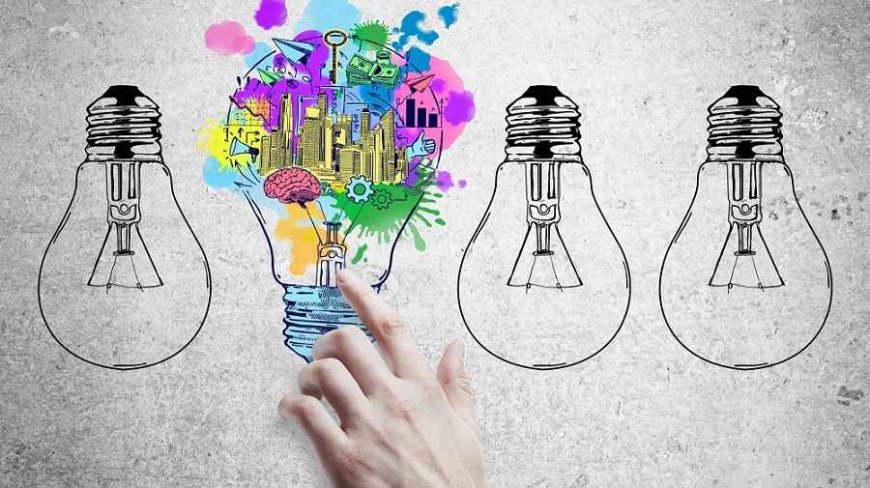The Changing Landscape of Education: Embracing Innovation and Adapting to the Digital Age
Education has always been a cornerstone of society, shaping the minds of individuals and fueling progress. However,

Education has always been a cornerstone of society, shaping the minds of individuals and fueling progress. However, the landscape of education is undergoing a profound transformation in response to technological advancements and evolving societal needs. From traditional classrooms to online learning platforms, from textbooks to interactive multimedia, education is embracing innovation like never before. In this article, we will explore the changing landscape of education and how it is adapting to the digital age.
Online Learning and Accessibility:
One of the most significant changes in education is the rise of online learning. With the advent of internet connectivity and e-learning platforms, education is becoming more accessible to people worldwide. Online courses, virtual classrooms, and digital resources allow individuals to pursue education regardless of their geographical location or time constraints. This accessibility is empowering learners of all ages and backgrounds to acquire knowledge and skills conveniently.
Personalized Learning:
The traditional one-size-fits-all approach to education is giving way to personalized learning experiences. Technology enables adaptive learning systems that tailor educational content and pace to individual students' needs and learning styles. Machine learning algorithms analyze students' performance and provide personalized feedback, allowing them to progress at their own pace. This shift towards personalized learning enhances engagement, motivation, and ultimately, the effectiveness of education.
Blended Learning Environments:
Blending traditional face-to-face instruction with online learning components has gained momentum in recent years. Blended learning environments combine the benefits of both physical classrooms and digital resources. Students engage in interactive activities, collaborative projects, and discussions while also utilizing online tools and resources for research, practice, and assessment. This hybrid approach offers flexibility, promotes self-directed learning, and prepares students for the digital workplace.
Digital Literacy and 21st-Century Skills:
In the digital age, it is essential for students to develop digital literacy skills and 21st-century competencies. Education is now emphasizing critical thinking, problem-solving, creativity, collaboration, and digital citizenship. Students are encouraged to leverage technology to gather information, evaluate sources, communicate effectively, and leverage online tools for productivity. The evolving landscape of education recognizes the importance of preparing students to thrive in a technology-driven society.
Lifelong Learning and Continuous Skill Development:
In the past, education was primarily associated with the early stages of life. However, the changing landscape recognizes the importance of lifelong learning and continuous skill development. As technology rapidly evolves and industries undergo significant changes, individuals must adapt and acquire new skills throughout their lives. Online courses, micro-credentials, and professional development programs enable individuals to upskill or reskill, ensuring their relevance in a dynamic job market
Collaborative Learning and Global Connections:
The changing landscape of education is fostering collaboration and global connections among learners. Digital platforms enable students from different parts of the world to connect, share ideas, and work together on projects. Virtual classrooms and video conferencing tools facilitate cross-cultural exchanges and enhance cultural understanding. Collaborative learning experiences prepare students to navigate diverse environments and develop global perspectives, essential skills in today's interconnected world.
Gamification and Interactive Learning:
Gamification is transforming education by incorporating game elements into the learning process. Interactive simulations, educational games, and virtual reality experiences engage students in immersive and enjoyable learning activities. Gamification not only enhances motivation but also promotes problem-solving, decision-making, and perseverance. By turning education into an interactive and rewarding experience, gamification sparks curiosity and ignites a passion for lifelong learning.
Data Analytics for Educational Insights:
The availability of vast amounts of data in education opens up new possibilities for understanding and optimizing learning experiences. Data analytics tools allow educators to gather insights into student performance, identify areas for improvement, and personalize instruction further. By analyzing student data, educational institutions can make data-driven decisions to enhance curriculum design, pedagogy, and educational policies, resulting in more effective teaching and learning outcomes.
Remote and Distance Learning:
Recent global events have accelerated the adoption of remote and distance learning. When physical attendance becomes challenging or impossible, technology allows education to continue remotely. Virtual classrooms, video lectures, and online collaboration tools enable seamless remote learning experiences. While challenges exist, remote and distance learning have showcased the potential for flexible education and expanded opportunities for students who might not have otherwise had access to quality education.
Teacher Role and Professional Development:
As the educational landscape evolves, so does the role of teachers. Educators are transforming into facilitators and guides, supporting students' individual learning journeys. Teachers play a crucial role in curating digital resources, designing engaging activities, and providing personalized feedback. Additionally, ongoing professional development is vital for teachers to stay updated with emerging technologies, pedagogical approaches, and best practices in the digital age.
The changing landscape of education encompasses diverse facets, including collaborative learning, gamification, data analytics, remote learning, and the evolving role of teachers. By embracing these changes and leveraging technology, education is becoming more inclusive, interactive, and adaptable to the needs of learners in the digital age. As we continue to navigate the educational landscape, it is essential to prioritize innovation, pedagogical excellence, and equitable access to ensure that education remains a powerful force for individual growth, societal progress, and global transformation.
